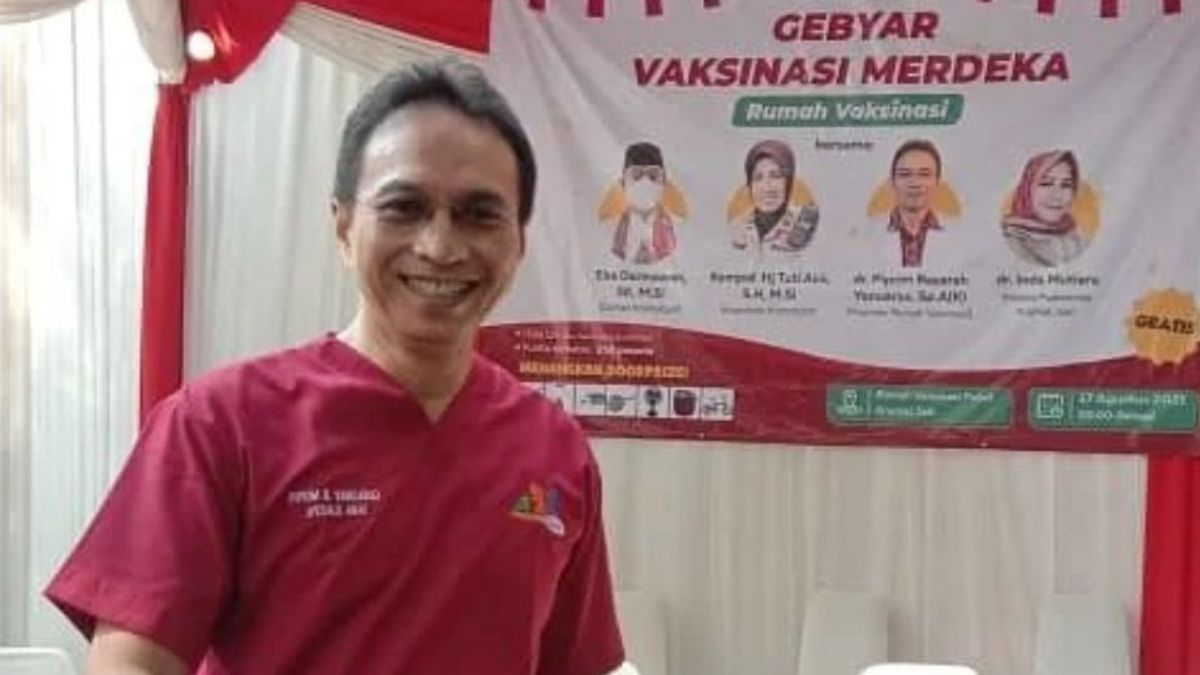JAKARTA - Starting 2022, the Indonesian Pediatrician Association (IDAI) released the latest recommendations regarding Face-to-face Learning (PTM) for school children. Dr. Piprim Basarah Yanuarso, SpA(K), General Chairperson of the Indonesian Pediatrician Association (IDAI), said that this latest recommendation was released by considering several things, including because based on previous experiences, after every holiday, COVID-19 cases will not increase. only in adults but also in children.
In addition, Omicron variants have been found in Indonesia, plus data in other countries such as the United States, European and African countries regarding the increase in cases of COVID-19 in children in the last few weeks where most of the cases of sick children are children who have not received treatment. COVID-19 immunization.
Added by Dr. Hikari Ambara Sjakti, SpA(K) as Secretary General of IDAI, that this recommendation also takes into account the importance of the education process for school-age children and the application of several innovative learning methods by the Ministry of Education and Culture of the Republic of Indonesia. "IDAI supports the implementation of face-to-face learning but at the right time and place, because the safety and health of children is the main priority," said Dr. Hikari.
Here are 13 IDAI recommendations: 1. To open face-to-face learning, 100 percent of teachers and school staff must have received the COVID-19 vaccination. 2. Children who can enter school are children who have been immunized against COVID-19 completely 2 times and without comorbidities. 3. Schools must still comply with health protocols, especially focusing on: The use of masks is mandatory for everyone in the school environment, Availability of hand washing facilities, Maintaining distance, Not eating together, Ensuring air circulation is maintained, Activating an active screening system per day for children , teachers, school staff and their families who have suspected COVID-19 symptoms. 4. For the category of children aged 12-18 years a. Face-to-face learning can be carried out 100 percent in the following conditions: No increase in COVID-19 cases in the area, No local transmission of Omicron in the area. b. Face-to-face learning can be carried out using a hybrid method (50 percent offline, 50 percent online) under the following conditions: COVID-19 cases are still found but the positivity rate is below 8 percent, Omicron local transmission is found that can still be controlled, Children, teachers, and school officials have get 100 percent COVID-19 vaccination.5. For the category of children aged 6-11 years a. Face-to-face learning can be carried out using a hybrid method (50 percent offline, 50 percent online) under the following conditions: There is no increase in COVID-19 cases in the area, There is no local transmission of Omicron in the area. b. Face-to-face learning can be carried out using a hybrid method (50 percent online, 50 percent offline outdoor) because: COVID-19 cases are still found but the positivity rate is below 8 percent, Omicron local transmission is found which can still be controlled, and the recommended outdoor facilities are school grounds, parks, sports centers, child-friendly integrated public spaces.
6. For the category of children aged under 6 years a. Face-to-face learning schools have not been recommended until it is stated that there are no new cases of COVID-19 or there is no increase in new cases. b. Schools can provide synchronization and asynchronous learning with online methods and enable parental involvement at home in outdoor and outdoor activities. c. Schools and parents can carry out creative activities such as: Activating local games at home, Conducting independent outdoor learning in the open for each family with modules directed by the school such as gardening activities, nature exploration and so on. For play recommendations, you can quote from the recommendations for children's games according to IDAI recommendations.
7. Children with comorbidities can first consult a pediatrician. Child comorbidities include diseases such as malignancy, diabetes mellitus, chronic kidney disease, autoimmune disease, chronic lung disease, obesity, hypertension, and others.
8. Calling for immediate completion of routine immunizations for children aged 6 years and over. 9. Children are considered to have received protection from COVID-19 immunization if they have received two complete doses and the protection is declared sufficient after 2 weeks after the last immunization injection. 10. Schools and the government give freedom to parents and families to choose face-to-face or online learning, there should be no coercion. 11. For children who choose online learning, schools and the government must ensure the availability of online learning processes. 12. Complete recommendations regarding health protocols and mitigation processes refer to previous IDAI recommendations. 13. The decision to open or close schools must consider whether there are new cases of COVID19 in schools or not.
The English, Chinese, Japanese, Arabic, and French versions are automatically generated by the AI. So there may still be inaccuracies in translating, please always see Indonesian as our main language. (system supported by DigitalSiber.id)













